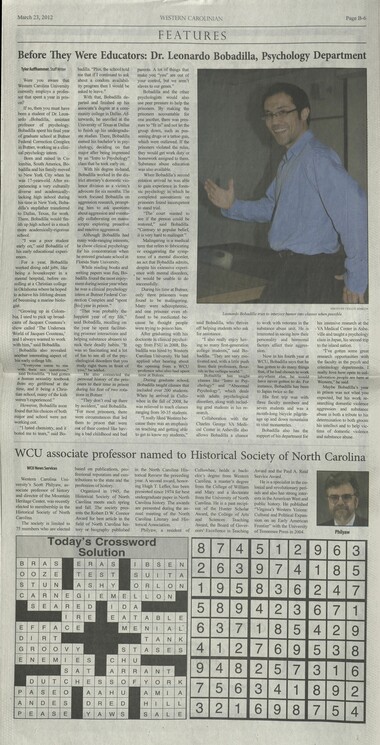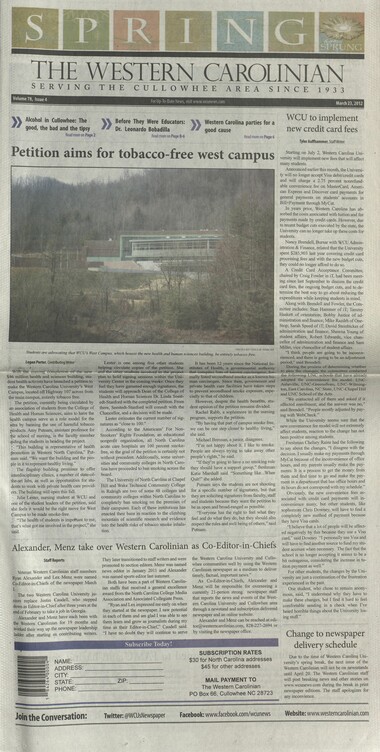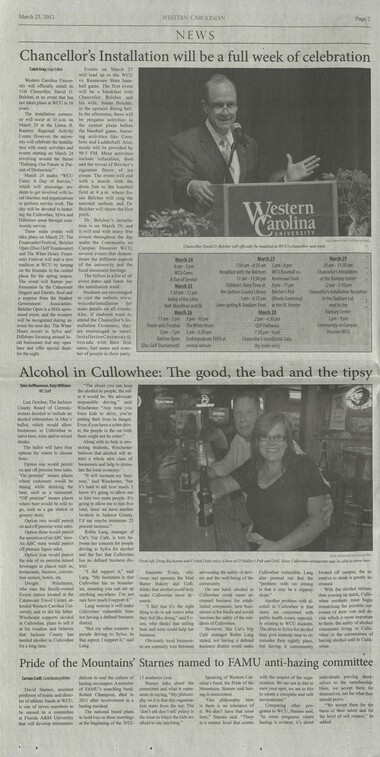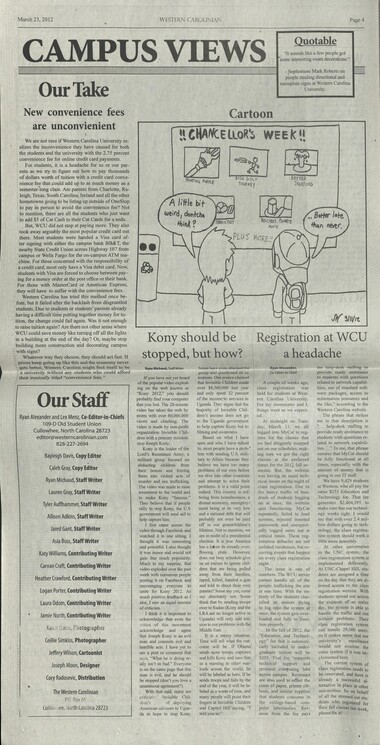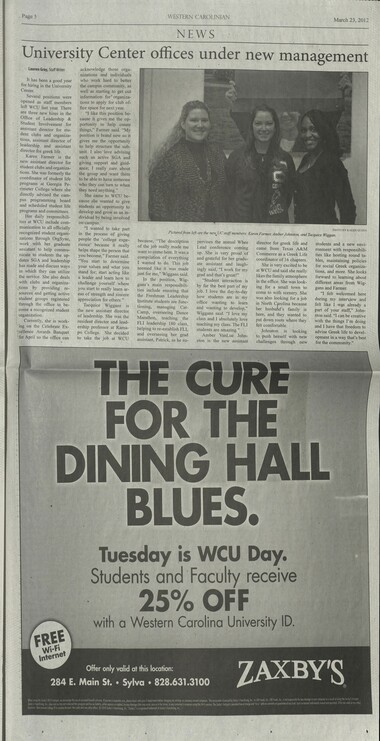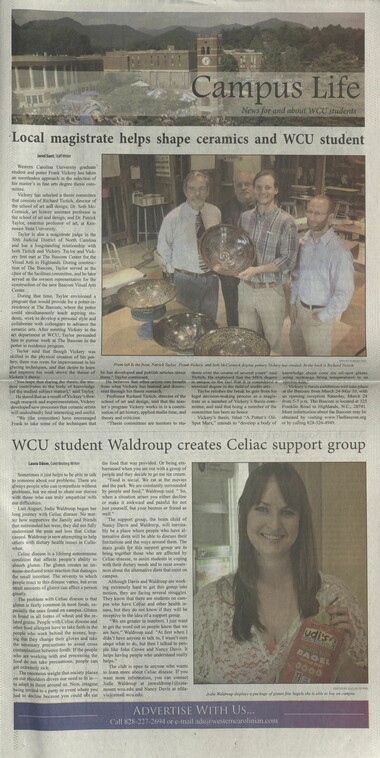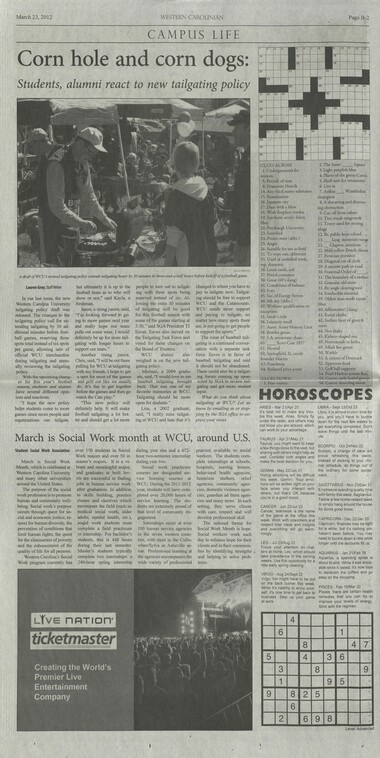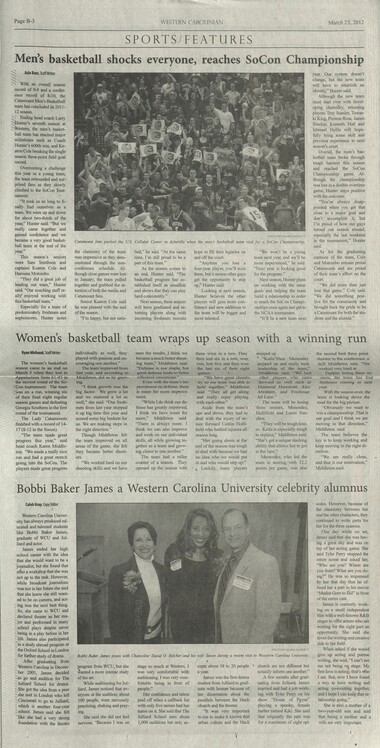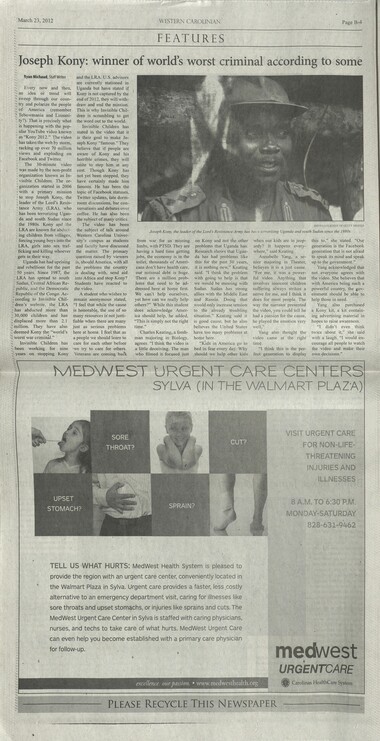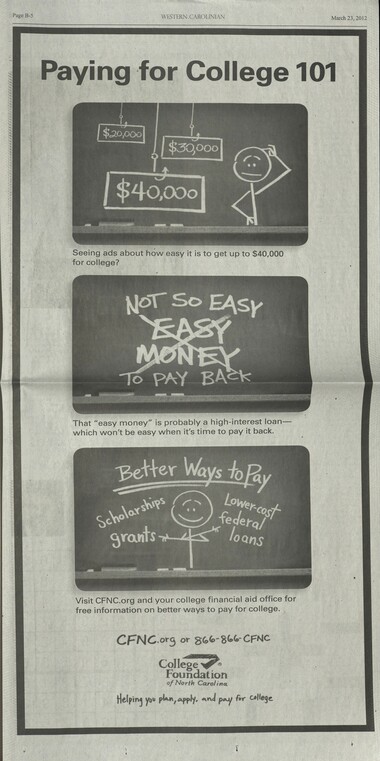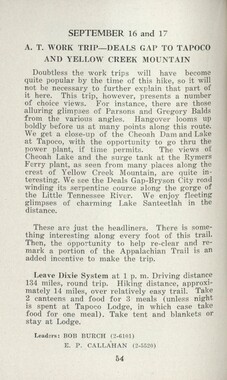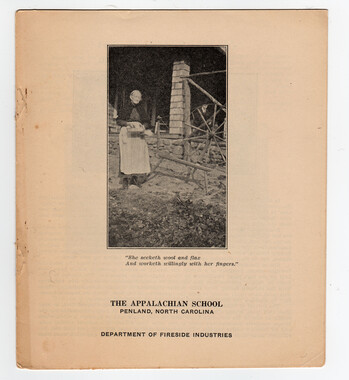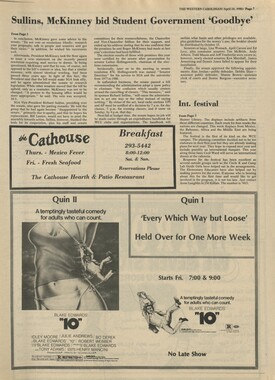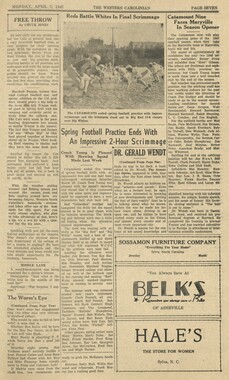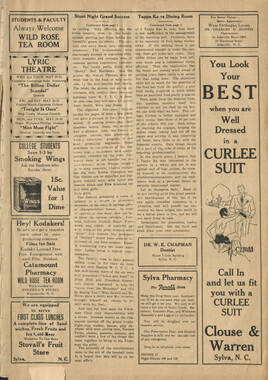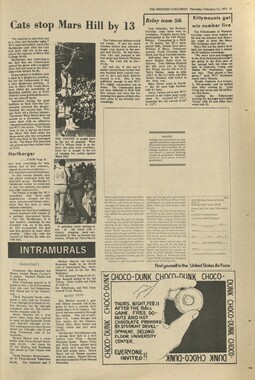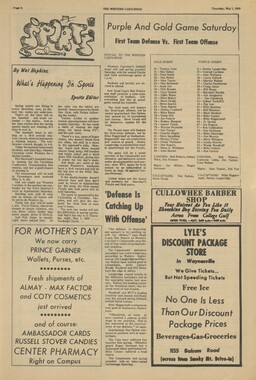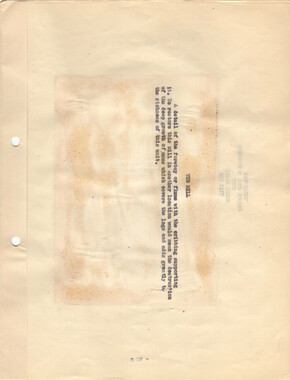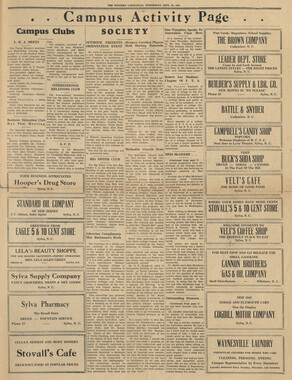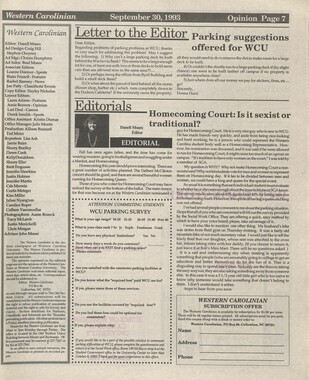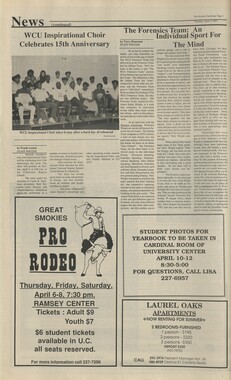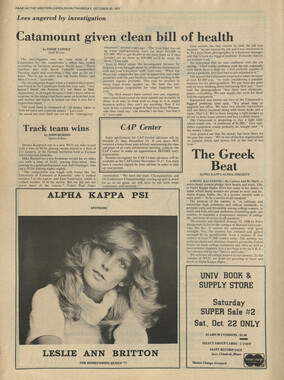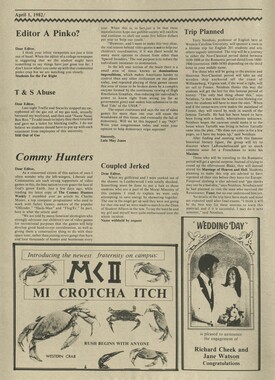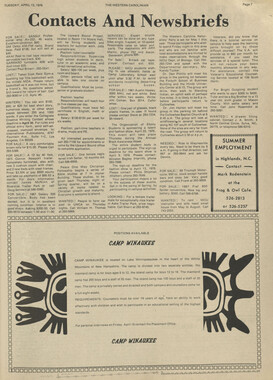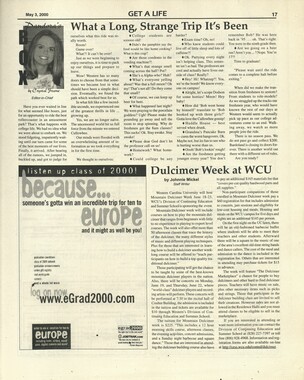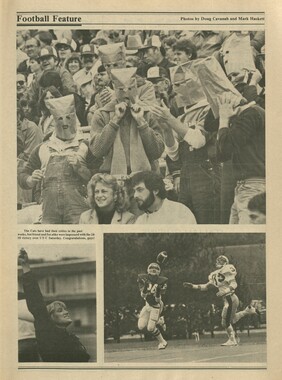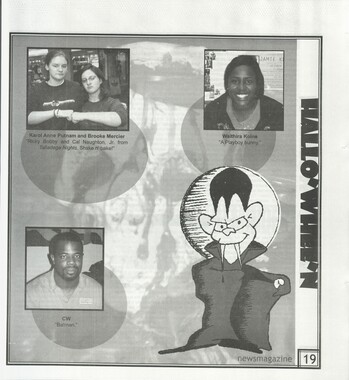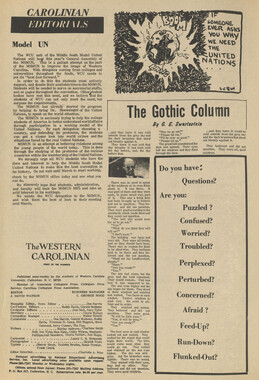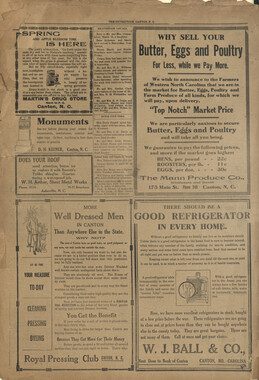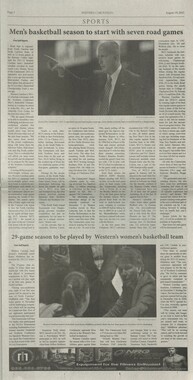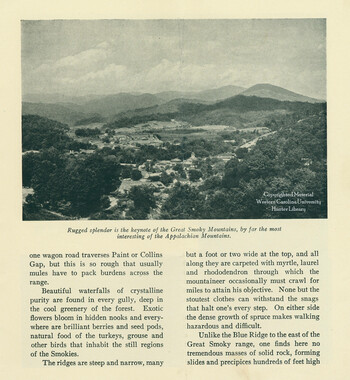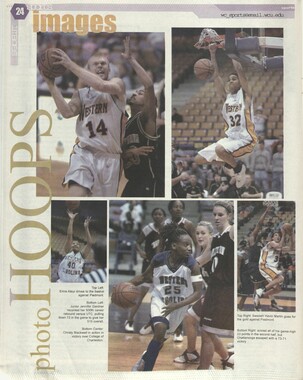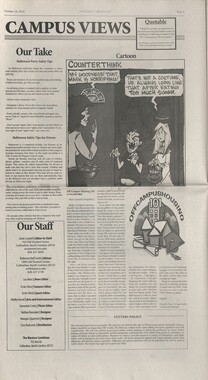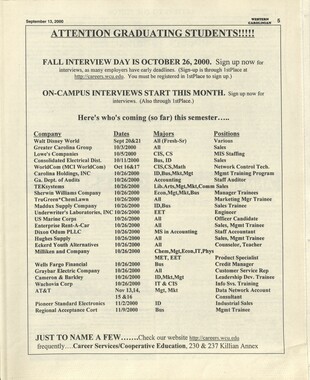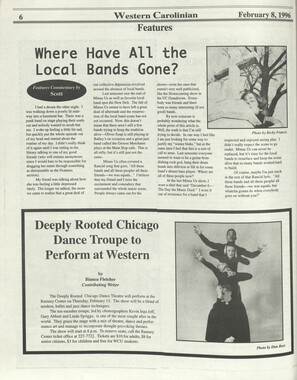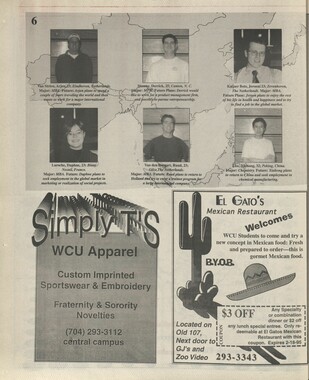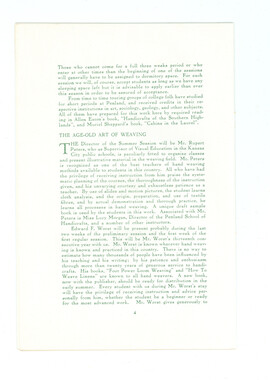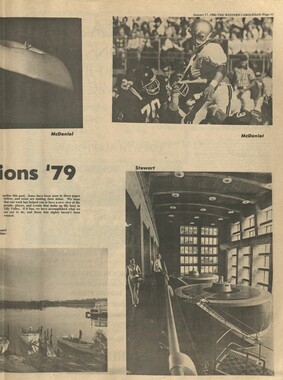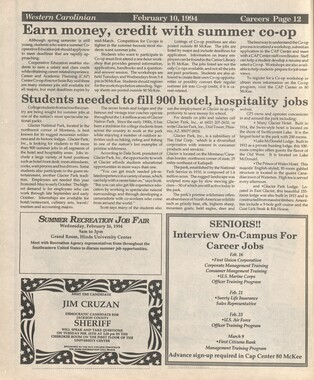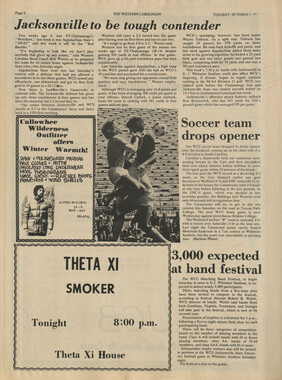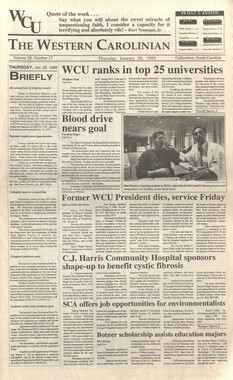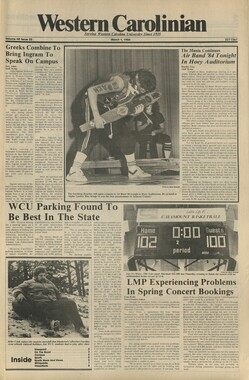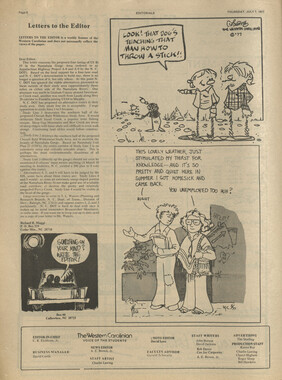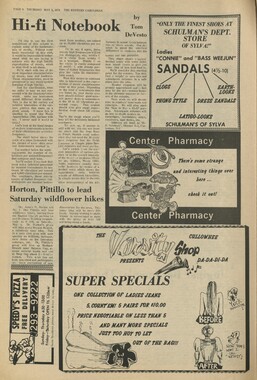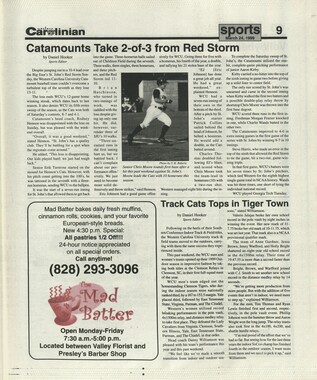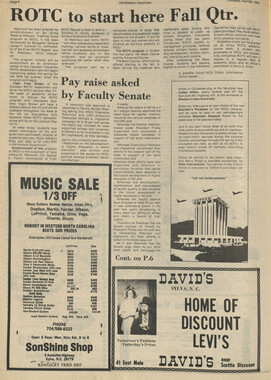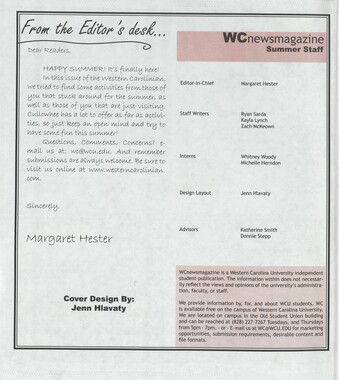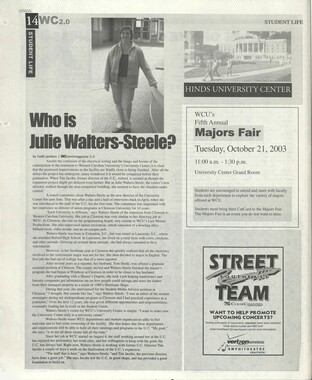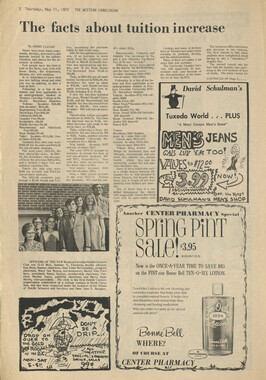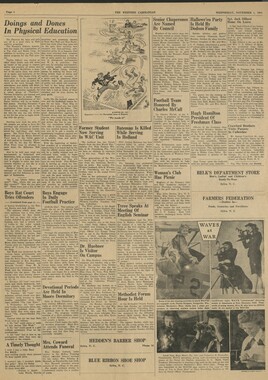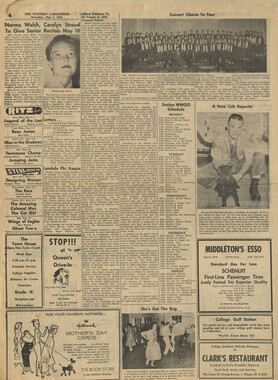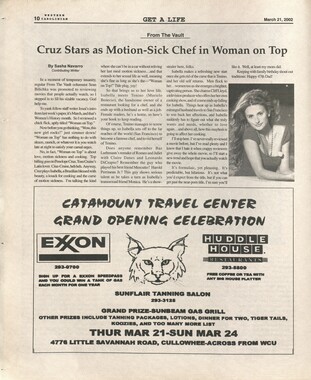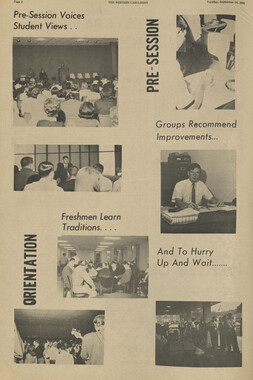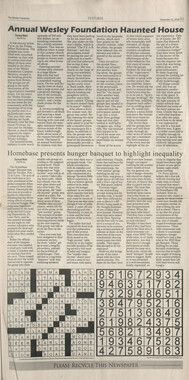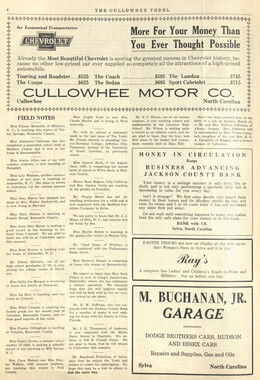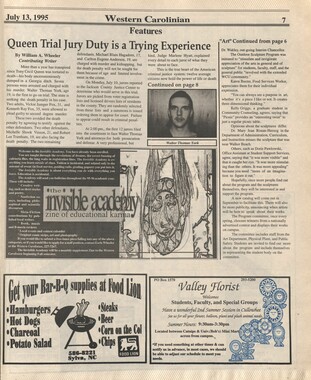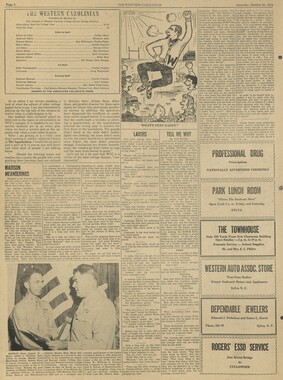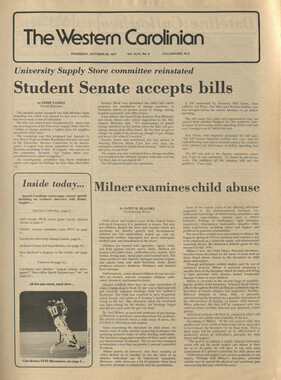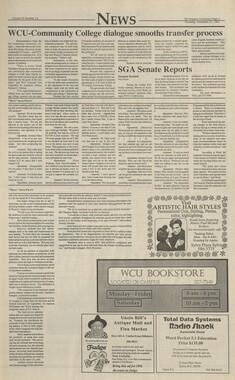Western Carolina University (21)
View all
- Canton Champion Fibre Company (2308)
- Cherokee Traditions (291)
- Civil War in Southern Appalachia (165)
- Craft Revival (1942)
- George Masa Collection (137)
- Great Smoky Mountains - A Park for America (3080)
- Highlights from Western Carolina University (422)
- Horace Kephart (998)
- Journeys Through Jackson (159)
- LGBTQIA+ Archive of Jackson County (89)
- Oral Histories of Western North Carolina (318)
- Picturing Appalachia (6617)
- Stories of Mountain Folk (413)
- Travel Western North Carolina (153)
- Western Carolina University Fine Art Museum Vitreograph Collection (129)
- Western Carolina University Herbarium (92)
- Western Carolina University: Making Memories (738)
- Western Carolina University Publications (2491)
- Western Carolina University Restricted Electronic Theses and Dissertations (146)
- Western North Carolina Regional Maps (71)
- World War II in Southern Appalachia (131)
University of North Carolina Asheville (6)
View all
- Allanstand Cottage Industries (62)
- Appalachian National Park Association (53)
- Bennett, Kelly, 1890-1974 (1463)
- Berry, Walter (76)
- Brasstown Carvers (40)
- Carver, George Washington, 1864?-1943 (26)
- Cathey, Joseph, 1803-1874 (1)
- Champion Fibre Company (233)
- Champion Paper and Fibre Company (297)
- Cherokee Indian Fair Association (16)
- Cherokee Language Program (22)
- Crowe, Amanda (40)
- Edmonston, Thomas Benton, 1842-1907 (7)
- Ensley, A. L. (Abraham Lincoln), 1865-1948 (275)
- Fromer, Irving Rhodes, 1913-1994 (70)
- George Butz (BFS 1907) (46)
- Goodrich, Frances Louisa (120)
- Grant, George Alexander, 1891-1964 (96)
- Heard, Marian Gladys (60)
- Kephart, Calvin, 1883-1969 (15)
- Kephart, Horace, 1862-1931 (313)
- Kephart, Laura, 1862-1954 (91)
- Laney, Gideon Thomas, 1889-1976 (439)
- Masa, George, 1881-1933 (61)
- McElhinney, William Julian, 1896-1953 (44)
- Niggli, Josephina, 1910-1983 (10)
- North Carolina Park Commission (105)
- Osborne, Kezia Stradley (9)
- Owens, Samuel Robert, 1918-1995 (11)
- Penland Weavers and Potters (36)
- Roberts, Vivienne (15)
- Roth, Albert, 1890-1974 (142)
- Schenck, Carl Alwin, 1868-1955 (1)
- Sherrill's Photography Studio (2565)
- Southern Highland Handicraft Guild (127)
- Southern Highlanders, Inc. (71)
- Stalcup, Jesse Bryson (46)
- Stearns, I. K. (213)
- Thompson, James Edward, 1880-1976 (226)
- United States. Indian Arts and Crafts Board (130)
- USFS (683)
- Vance, Zebulon Baird, 1830-1894 (1)
- Weaver, Zebulon, 1872-1948 (58)
- Western Carolina College (230)
- Western Carolina Teachers College (282)
- Western Carolina University (2008)
- Western Carolina University. Mountain Heritage Center (18)
- Whitman, Walt, 1819-1892 (10)
- Wilburn, Hiram Coleman, 1880-1967 (73)
- Williams, Isadora (3)
- Cain, Doreyl Ammons (0)
- Crittenden, Lorraine (0)
- Rhodes, Judy (0)
- Smith, Edward Clark (0)
- Appalachian Region, Southern (3032)
- Asheville (N.C.) (1945)
- Avery County (N.C.) (26)
- Blount County (Tenn.) (195)
- Buncombe County (N.C.) (1680)
- Cherokee County (N.C.) (283)
- Clay County (N.C.) (556)
- Graham County (N.C.) (238)
- Great Smoky Mountains National Park (N.C. and Tenn.) (535)
- Haywood County (N.C.) (3573)
- Henderson County (N.C.) (70)
- Jackson County (N.C.) (4925)
- Knox County (Tenn.) (35)
- Knoxville (Tenn.) (13)
- Lake Santeetlah (N.C.) (10)
- Macon County (N.C.) (421)
- Madison County (N.C.) (216)
- McDowell County (N.C.) (39)
- Mitchell County (N.C.) (135)
- Polk County (N.C.) (35)
- Qualla Boundary (982)
- Rutherford County (N.C.) (78)
- Swain County (N.C.) (2185)
- Transylvania County (N.C.) (270)
- Watauga County (N.C.) (12)
- Waynesville (N.C.) (86)
- Yancey County (N.C.) (72)
- Aerial Photographs (3)
- Aerial Views (60)
- Albums (books) (4)
- Articles (1)
- Artifacts (object Genre) (228)
- Bibliographies (1)
- Biography (general Genre) (2)
- Cards (information Artifacts) (38)
- Clippings (information Artifacts) (193)
- Copybooks (instructional Materials) (3)
- Crafts (art Genres) (622)
- Depictions (visual Works) (21)
- Design Drawings (1)
- Digital Moving Image Formats (2)
- Drawings (visual Works) (185)
- Envelopes (115)
- Exhibitions (events) (1)
- Facsimiles (reproductions) (1)
- Fiction (general Genre) (4)
- Financial Records (12)
- Fliers (printed Matter) (67)
- Glass Plate Negatives (381)
- Guidebooks (2)
- Internegatives (10)
- Interviews (823)
- Land Surveys (102)
- Letters (correspondence) (1070)
- Manuscripts (documents) (618)
- Maps (documents) (177)
- Memorandums (25)
- Minutes (administrative Records) (59)
- Negatives (photographs) (6090)
- Newsletters (1290)
- Newspapers (2)
- Notebooks (8)
- Occupation Currency (1)
- Paintings (visual Works) (1)
- Pen And Ink Drawings (1)
- Periodicals (194)
- Personal Narratives (10)
- Photographs (12977)
- Plans (maps) (1)
- Poetry (6)
- Portraits (4568)
- Postcards (329)
- Programs (documents) (181)
- Publications (documents) (2444)
- Questionnaires (65)
- Relief Prints (26)
- Sayings (literary Genre) (1)
- Scrapbooks (282)
- Sheet Music (2)
- Slides (photographs) (402)
- Songs (musical Compositions) (2)
- Sound Recordings (802)
- Specimens (92)
- Speeches (documents) (18)
- Tintypes (photographs) (8)
- Transcripts (329)
- Text Messages (0)
- A.L. Ensley Collection (275)
- Appalachian Industrial School Records (7)
- Appalachian National Park Association Records (336)
- Axley-Meroney Collection (2)
- Bayard Wootten Photograph Collection (20)
- Bethel Rural Community Organization Collection (7)
- Blumer Collection (5)
- C.W. Slagle Collection (20)
- Canton Area Historical Museum (2110)
- Carlos C. Campbell Collection (462)
- Cataloochee History Project (64)
- Cherokee Studies Collection (4)
- Daisy Dame Photograph Album (5)
- Daniel Boone VI Collection (1)
- Doris Ulmann Photograph Collection (112)
- Elizabeth H. Lasley Collection (1)
- Elizabeth Woolworth Szold Fleharty Collection (4)
- Frank Fry Collection (95)
- George Masa Collection (173)
- Gideon Laney Collection (452)
- Hazel Scarborough Collection (2)
- Hiram C. Wilburn Papers (28)
- Historic Photographs Collection (236)
- Horace Kephart Collection (861)
- Humbard Collection (33)
- Hunter and Weaver Families Collection (1)
- I. D. Blumenthal Collection (4)
- Isadora Williams Collection (4)
- Jesse Bryson Stalcup Collection (47)
- Jim Thompson Collection (224)
- John B. Battle Collection (7)
- John C. Campbell Folk School Records (80)
- John Parris Collection (6)
- Judaculla Rock project (2)
- Kelly Bennett Collection (1482)
- Love Family Papers (11)
- Major Wiley Parris Civil War Letters (3)
- Map Collection (12)
- McFee-Misemer Civil War Letters (34)
- Mountain Heritage Center Collection (4)
- Norburn - Robertson - Thomson Families Collection (44)
- Pauline Hood Collection (7)
- Pre-Guild Collection (2)
- Qualla Arts and Crafts Mutual Collection (12)
- R.A. Romanes Collection (681)
- Rosser H. Taylor Collection (1)
- Samuel Robert Owens Collection (94)
- Sara Madison Collection (144)
- Sherrill Studio Photo Collection (2558)
- Smoky Mountains Hiking Club Collection (616)
- Stories of Mountain Folk - Radio Programs (374)
- The Reporter, Western Carolina University (510)
- Venoy and Elizabeth Reed Collection (16)
- WCU Gender and Sexuality Oral History Project (36)
- WCU Mountain Heritage Center Oral Histories (25)
- WCU Oral History Collection - Mountain People, Mountain Lives (71)
- WCU Students Newspapers Collection (1923)
- Western North Carolina Tomorrow Black Oral History Project (69)
- William Williams Stringfield Collection (2)
- Zebulon Weaver Collection (109)
- African Americans (390)
- Appalachian Trail (35)
- Artisans (521)
- Cherokee art (84)
- Cherokee artists -- North Carolina (10)
- Cherokee language (21)
- Cherokee pottery (101)
- Cherokee women (208)
- Church buildings (190)
- Civilian Conservation Corps (U.S.) (111)
- College student newspapers and periodicals (2012)
- Dams (108)
- Dance (1023)
- Education (222)
- Floods (63)
- Folk music (1015)
- Forced removal, 1813-1903 (2)
- Forest conservation (220)
- Forests and forestry (1198)
- Gender nonconformity (4)
- Great Smoky Mountains National Park (N.C. and Tenn.) (181)
- Hunting (47)
- Landscape photography (25)
- Logging (122)
- Maps (83)
- Mines and mineral resources (9)
- North Carolina -- Maps (18)
- Paper industry (38)
- Postcards (255)
- Pottery (135)
- Railroad trains (72)
- Rural electrification -- North Carolina, Western (3)
- School integration -- Southern States (2)
- Segregation -- North Carolina, Western (5)
- Slavery (5)
- Sports (452)
- Storytelling (243)
- Waterfalls -- Great Smoky Mountains (N.C. and Tenn.) (66)
- Weaving -- Appalachian Region, Southern (280)
- Wood-carving -- Appalachian Region, Southern (328)
- World War, 1939-1945 (174)
Western Carolinian Volume 78 Number 04
Item
Item’s are ‘child’ level descriptions to ‘parent’ objects, (e.g. one page of a whole book).
-
-
March 23, 2012 WESTERN CAROLINIAN Page B-6 FEATURES Before They Were Educators: Dr. Leonardo Bobadilla, Psychology Department Tyler Auffhammer, Staff Writer Were you aware that Western Carolina University currently employs a profes- sor that spent a year in pris- on? If so, then you must have been a student of Dr. Leon- ardo ,Bobadilla, assistant professor of psychology. Bobadilla spent his final year of graduate school at Butner Federal Correction Complex in Butner, working as a clini- cal psychology intern. Born and raised in Co- lombia, South America, Bo- badilla and his family moved to New York City when he was 17-years-old. After ex- periencing a very culturally diverse and academically- lacking high school during his time in New York, Boba- dillas stepfather transferred to Dallas, Texas, for work. There, Bobadilla would fin- ish up high school in a much more academically-rigorous school. I was a poor student early on, said Bobadilla of his early educational experi- . ences. .For a year, Bobadilla worked doing odd jobs, like being a housekeeper in a mental hospital, before en- rolling at a Christian college in Oklahoma where-he hoped to achieve his lifelong dream of becoming a marine biolo- gist. o Growing up in Colom- bia, I used to pick up broad- casts of Jacques Cousteaus show called The Undersea World of Jacques Cousteau, and I always wanted to work with him, said Bobadilla. Bobadilla also revealed another interesting, aspect of : ~ his early college life. _. Everyone came to me with their sex questions, Said Bobadilla. I had gotten a human sexuality textbook from my girlfriend at the time, and it being a Chris- tian school, many of the kids werent experienced. _ However, Bobadilla soon found that his choices of both major and school were not working out. I hated chemistry, and it bored me to tears, said Bo- PIVIITINUI NAME RTA E AST ERVE EFAS SEE WCU News Services Western Carolina Uni- versitys Scott Philyaw, as- sociate professor of history and director of the Mountain Heritage Center, was recently elected to membership in the Historical Society of North Carolina. The society is limited to 75 members who are elected CAMEL IAEI MAKIN T SEDATE OA NREL ESE WCU associate profes badilla. Plus, the school told me that if I continued to ask about a condom ayvailabil- ity-program then I would be asked to leave. With that, Bobadilla de- parted and finished up his associates degree at a com- munity college in Dallas. Af- terwards, he enrolled at the University of Texas at Dallas . to finish up his undergradu- ate studies. There, Bobadilla earned his bachelors in psy- chology, deciding on that major after being impressed by an Intro to Psychology class that he took early on. With his degree in-hand, Bobadilla worked in the dis- trict attorneys domestic vio- lence division as a victims advocate for six months. The work focused Bobadilla on aggression research, prompt- ing him to ask questions about aggression and eventu- ally collaborating on manu- scripts exploring proactive and reactive aggression. Although Bobadilla had many wide-ranging interests, he chose clinical psychology for his concentration when - he entered graduate school at . Florida State University. While reading books and writing papers was fun, Bo- badilla found the most enjoy- ment during senior year when he was a clinical psychology _ intern at Butner Federal Cor- . rection Complex and spent [his] year in prison. That was probably the happiest year of my life, said Bobadilla, recalling on the year he spent facilitat- ing prisoner interactions and helping substance abusers to nick their deadly habits. It was so fascinating and a lot of fun to see all of the psy- chological disorders that you _ study right there in front of - you, he added. _ Hie also connected the , personal history of the pris- oners to their time in prison during his first of two rota- tions in Butner. They dont end up there by accident, said Bobadilla. For most prisoners, there were circumstances that led them to prison that were out of their control like hav- ing a bad childhood and bad based on publications, pro- fessional reputation and con- tributions to the state and the profession of history. _ Organized in 1945, the Historical Society of North Carolina meets each spring and fall. The society pres- ents the Robert D.W. Connor Award for best article in the field of North Carolina his- tory or biography published UNS ATRIA parents. A lot of things that make you you are out of - your control, but we arent slaves to our genes. Bobadilla and the other psychologists would also use peer pressure to help the prisoners. By making the prisoners accountable for one another, there was pres- sure to fit in and not let the group down, such as pos- sessing drugs or a tattoo gun, which were outlawed. If the prisoners violated the rules, they would get work duty or homework assigned to them. Substance abuse education was also available. When Bobadillas second rotation arrived he was able to gain experience in foren- sic psychology in which he completed assessments on prisoners found incompetent to stand trial. The court wanted to see if the person could be restored, said Bobadilla. ' Contrary to popular belief, it is very hard to malinger. Malingering is a medical . term that refers to fabricating or exaggerating the symp- toms of a mental disorder, an act that Bobadilla admits, despite his extensive experi- , ence with mental disorders, he would be unable.to do successfully. During his time at Butner, only three prisoners were found to be malingering. Many were schizophrenic, and one prisoner even r- fused to be medicated be- cause he thought people were trying to poisonhim. After graduating with his - doctorate in clinical psychol- ogy from FSU in 2008, Bo- badilla was hired by Western Carolina University. He had applied after hearing about - the opening from a WCU professor who also had spent time at Butner. _ During graduate school, Bobadilla taught classes that included over 200 students. When he arrived in Cullo- whee in the fall of 2008, he was relieved to teach classes ranging from 30-35 students. _ Treally liked Western be- cause there was an emphasis on teaching and getting able to get to know my students, ASG Rony ye re UA Teas LUA poy in the North Carolina His- torical Review the preceding year. A second award, honor- ing Hugh T. Lefler, has been presented since 1974 for best undergraduate paper in North Carolina history. The awards are presented during the an- nual meeting of the North Carolina: Literary and His- torical Association. Philyaw, a resident of SAA eA sor named t e|Nols|o[af=[n]o lal s[=[o]ofolo[~] "PHOTO BY CEILLIE SIMEISS Leonardo Bobadilla tries to interject humor into classes when possible. said Bobadilla, who thrives off helping students who ask for assistance. T also really enjoy hav- ing so many first-generation college students, said Bo- badilla. They are very mio- tivated and, with a little push from their professors, flour- ish in the college world. Bobadilla has taught classes like Intro to Psy- chology and Abnormal Psychology, which deals with adults psychological disorders, along with includ- ing grad students in his re- search. Collaboration with the Charles George VA Medi- cal Center in Asheville also allows Bobadilla a chance o Historical Society Cullowhee, holds a bach- elors degree from Western Carolina, a masters degree from the College of William and Mary and a doctorate from the University of North Carolina. He is a past recipi- ent of the Hunter Scholar Award, the College of Arts and Sciences Teaching Award, the Board of Gover- nors Excellence in Teaching ololr|~ folate o}@[mIJN[=|a[ololo Jo] 8] alo || to work with veterans in the substance abuse unit. He is interested in seeing how their personality and hormonal factors affect their ageres- sion. Now in his fourth year at WCU, Bobadilla says that he has gotten to do many. things that; if he had chosen to work anywhere else, he would have never gotten to do. For instance, Bobadilla has been to Japan twice so far. His first trip was with . three faculty members and seven students and was a month-long bicycle pilgrim- age up and down mountains to visit monasteries. Bobadilla also has -the support of his department for SA eR bao Kats Award and the Paul A. Reid Service Award. . He is a specialist in the co- lonial and revolutionary peri- ods and also has strong inter- ests in the American West and public history. He published Virginias Western Visions: Cultural and Political Expan- sion on an Early American Frontier with the University of Tennessee Press in 2004. ae nfo[~] =[S[olalofola fs Pe HKD S of North A Jo]olals|olro| lo ei his intensive research at th VA Medical Center in Ashe- ville and taught a psychology class in Japan, his second trip to the island nation. [ve gotten some great research opportunities with the faculty in the psych and criminology departments. I really love how open to col- laboration people are here at Western, he said. kay Maybe Bobadillas year in prison was not what you expected, but his work re- searching domestic violence aggression and substance abuse is both a tribute to his determination to both groom his intellect and to help vic- tims of domestic violence and substance abuse. PST IRI DEAT EHH G Poesy Carolina Philyaw jo] =] ||] alolo Av[ofolo|=[Nlalo
Object
Object’s are ‘parent’ level descriptions to ‘children’ items, (e.g. a book with pages).
-
The Western Carolinian is Western Carolina University's student-run newspaper. The paper was published as the Cullowhee Yodel from 1924 to 1931 before changing its name to The Western Carolinian in 1933.
-
